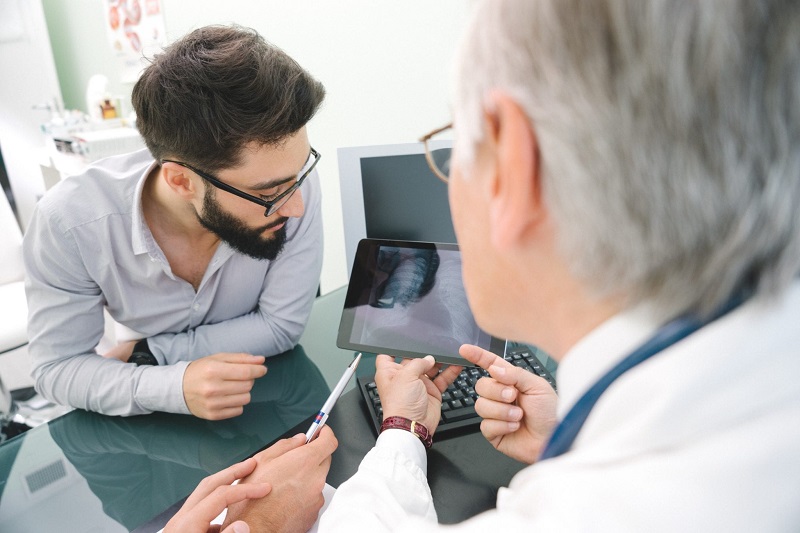

Updated: 3/11/21
People rarely know they have lung cancer when it’s in the earliest stages and is most curable. In fact, only 15 percent of lung cancers are diagnosed early. By the time someone has symptoms, they may already have stage 4 lung cancer, says Nabil Rizk, M.D., a board-certified pulmonary surgeon at Hackensack University Medical Center.
He says people used to get standard x-rays to check for lung cancer, but that method won’t pick up the small tumors. The newer low-dose computed tomography (LDCT), which is sometimes called a low-dose CT scan, is the only accepted test and has increased lung cancer survival in the United States by 20 percent.
The test itself is non-invasive and quite simple. You will position your body in a scan machine. A low dose or radiation will be used to create a highly-detailed image of your lungs. There is no blood work or dyes associated with this screening.
When to Have an LDCT Scan
According to the U.S. Preventative Services Task Force, you should have a LDCT scan annually if you:
- Have a history of heavy smoking, and
- Smoke now or have quit within the past 15 years, and
- Are between 50 and 80 years old.
Heavy smoking is defined as a history of 20 “pack years” or more. A pack year is a history of smoking a pack of cigarettes per day for one year. So if a person smokes two packs a day, it would only take them 10 calendar years to achieve a 20 pack year level.
Symptoms of Lung Cancer
You or a loved one may not fit the criteria above but have physical symptoms that are commonly associated with lung cancer. According to the American Cancer Society, they are:
- A cough that does not go away or gets worse
- Coughing up blood or rust-colored sputum (spit or phlegm)
- Chest pain that is often worse with deep breathing, coughing or laughing
- Hoarseness
- Weight loss and loss of appetite
- Shortness of breath
- Feeling tired or weak
- Infections such as bronchitis and pneumonia that don’t go away or keep coming back
- New onset of wheezing
There can be some other situations where your doctor may suggest you get screened if you have a:
- Personal history of lung cancer
- Chronic obstructive pulmonary disease (COPD)
- Have a close blood relative who has/had lung cancer
- Ongoing exposure to asbestos, arsenic, cadmium, silica or radon
If you have any of these risk factors, make an appointment with your personal physician today. It could save your life.
Next Steps & Resources:
- Meet our clinical contributor: Nabil Rizk, M.D.
- To make an appointment with Dr. Rizk or a doctor near you, call 800-822-8905 or visit our website.
- Learn more about options for lung cancer screening in NJ.
The material provided through HealthU is intended to be used as general information only and should not replace the advice of your physician. Always consult your physician for individual care.
Sources
Find a doctor near me

5 Questions to Ask Your Physician at an Annual Physical Exam

Manage Living with Chronic Illness

How to Form Your Cancer Care Team
